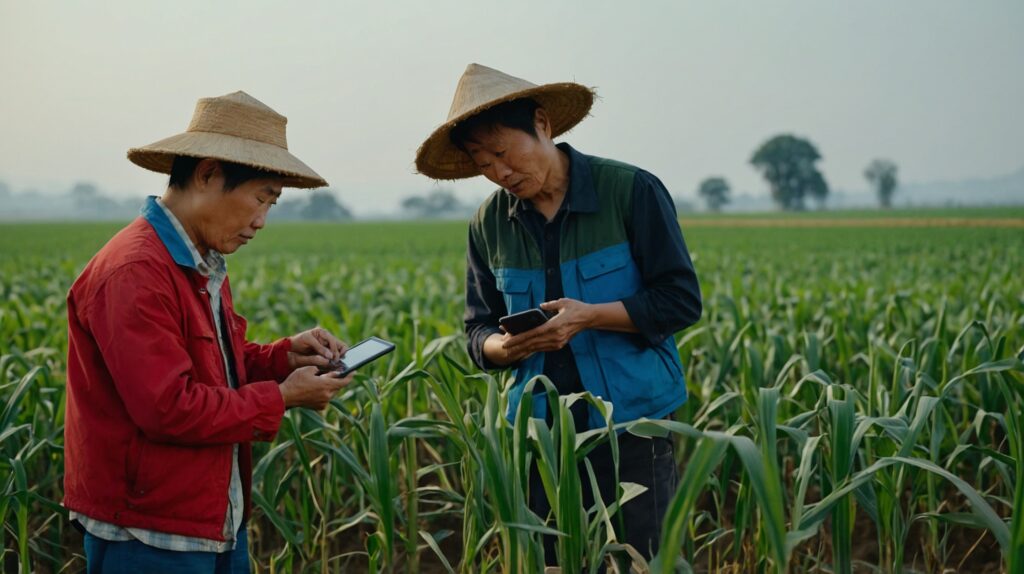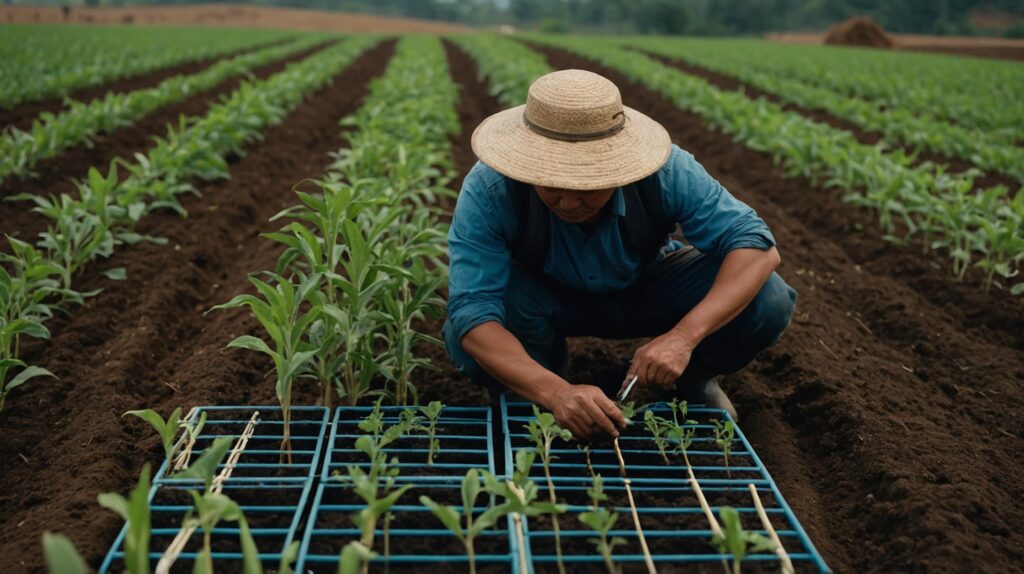
Evidently, improper use of chemical fertilizers still continues to be an alarming issue with regards to sustainable agriculture development in China. While fertilizers have been beneficial to achieving high food production levels, their excess application has led to the detrimental effects of pollution, low soil quality and lower economic returns. It is important to note that as China seeks to adopt more sustainable agricultural systems it will be vital to appreciate the existing factors that are likely to hinder or promote the uptake of fertilizer reduction and efficiency enhancement technologies by farmers.
However, a recent paper in PLOS ONE sought to understand how internet usage influences the practices of Chinese farmers regarding the use of sustainable fertilizing practices. As part of the team, Zhifei Ma of Xinyang Normal University with colleagues commissioned a large survey involving 1295 farm households from four cities in Henan Province which forms the Agricultural base of Central China. Attempting to employ modern econometric methods they undertook to establish the net effect of farmers’ internet use over the use of fertilizers reduction and efficiency measures improvements by them.
Highlights of the Research
According to the outcomes of the study, the following conclusions considered as key accomplishments have been reached with great importance:
The utilization of the internet raises the possibility of using some sustainable technologies: Among farmers who use the internet for accessing agricultural contents, They are 28.09% more likely when compared with the non-internet users to embrace the technologies for fertilizer reduction and efficiency enhancement.
The results of counterfactual analysis imply very high probable impact: If farmers who do not use the internet now start using it, their adoption probability of sustainable fertilizer use will increase by 40.67%.
A multiplicity of paths of influence:
The internet affects the behavior of farmers not only through direct exposure to information, but also through indirect:
- Increasing in expected economic rewards
- Heightened awareness of ecological rewards
- Lowering the perceived risks of unfamiliar tools
Social networks have contradictory effects:
Members of social networks in most cases facilitate the acquisition of technology. However, they also lessen the positive effects of internet use. This implies that internet usage is more advantageous for farmers with less dense social relation
Demographic and socio-economic factors matter:
Younger farmers, those educated beyond the high school level, members of the Communist Party of China (CPC), and farmers with more land tend to use the internet for agricultural purposes more than other groups.

Implications for Policy and Practice
These results are useful in terms of advancing sustainable agriculture in china as follows:
Enhancing the rural penetration of the internet: Especially utilizing the farmers’ digital skill without supporting rural ICT facilities to promote environmental farming best practices might take very long time.
Focused online content: The agricultural extension services as well as the policymakers should consider putting efforts to develop high-quality websites promoting both economic and ecological advantages of applying appropriate fertilizers.
Risk management techniques: It is possible to use virtual channels to disseminate best practices and to offer technical assistance, which assists in easing anxiety towards adoption of innovations by the farmers.
Considering a large portion of the world Internet works quite well, it should be viewed as addition and not replacement of peoples’ primary networks and field agricultural extension.
Demographic considerations: Promoting the use of internet resources for agricultural information should consider reaching the low level wealth older farmers and low educated internet users who may not be able to search for information easily.
Endnotes and Defense
To correct sample selection and endogeneity biases due to self-selection, the researchers relied on an endogenous switching probit model. This advanced technique enables a precise determination of the effect of using internet by the farmer to their agricultural undertakings. The consistency of the findings of the study was also confirmed through the use of different estimation techniques and modifications of the variables.
Acknowledgements and promotion for further study
However, in this paper, while these results are useful, the authors interject some limitations. First, data in the study is geographically targeted and confined to selected areas of Henan Province. Such may limit the ability to generalize to other provinces of China. Third, further research can be carried out on the finer details on how internet usage changes the way farmers make decisions.
Conclusion
This study shows that this transition can be enabled with the help of internet usage. In this case, both policymakers and agricultural extension services will be more efficient in promoting sustainable practices with the responsible use of the internet, hence promoting greener agriculture in the country.

The study advances the discourse on the role of information technologies in modern rural development and sustainable agriculture. And as the internet expands into the remote areas of China, it might just turn out to be a crucial contributor in the win-win situation farming that the country is fast tracking.
